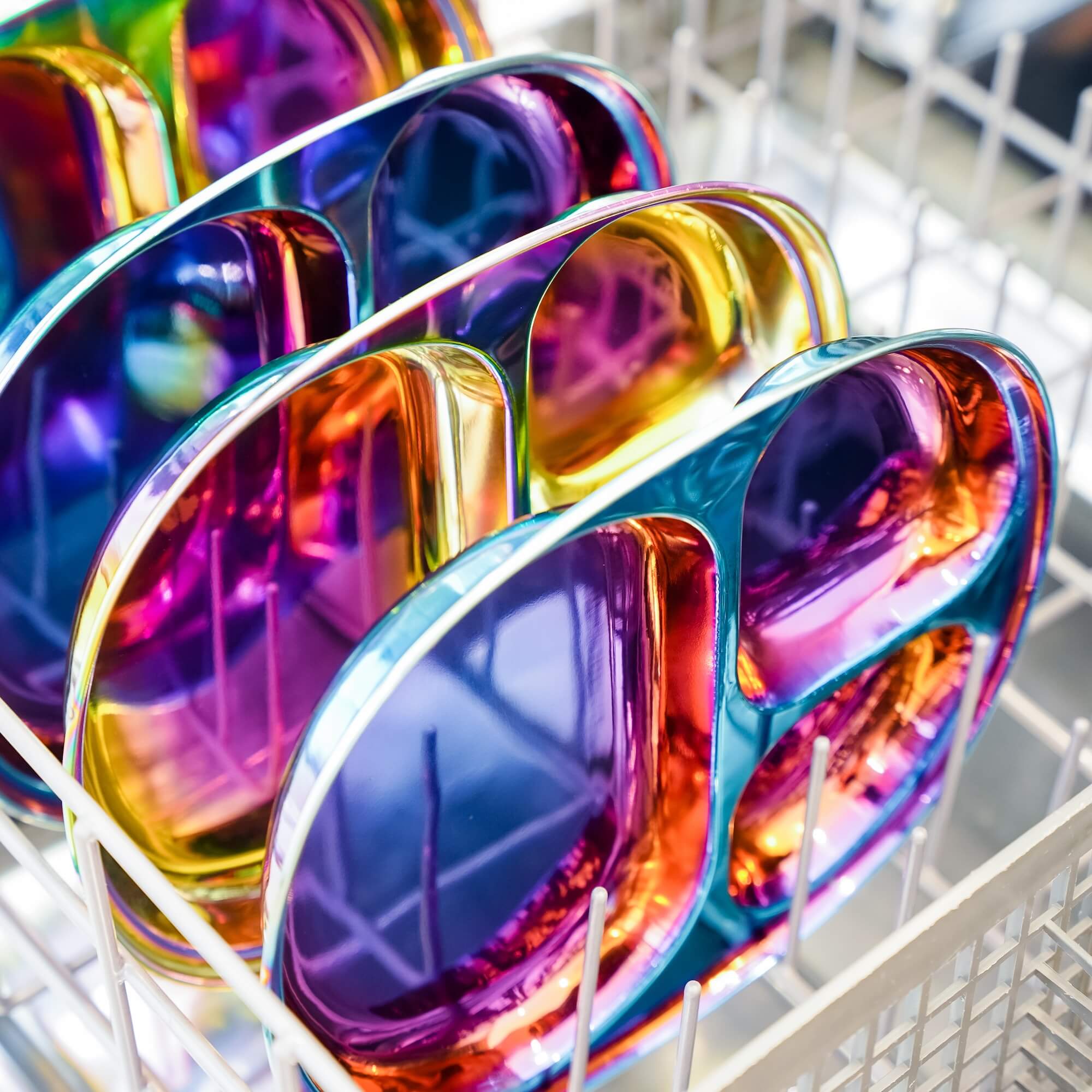Hand wash your new dishes thoroughly in hot water using a mild dish soap and a soft sponge. Rinse with water. Dry with a soft cloth.
Like all products you give to children, please check the products before use. As with all dishes, adult supervision is recommended, particularly for young children.
Remember, stainless steel is great at keeping cold things cold and hot things hot. Be sure to allow hot beverages or food to cool before consumption.
The best way to preserve your Ahimsa® dishes is to wash it by hand with a mild dish soap, soft sponge and hot water soon after use. Thoroughly dry it with a soft cloth. However, our products are dishwasher safe! If needed, use a soft cloth to buff out any spots left by the minerals in the water.
Note, just like bamboo, silicone, ceramic, glass and plastic, stainless steel has potential to scratch when used for dining. Stainless steel is non-porous, unbreakable and inert - making it a great choice of material for your kitchen to prevent bacterial growth, broken dishes and leached chemicals.
We use food-grade 304 18/8 stainless steel to produce our products, but please remember that it is called stainless steel, not stain-proof steel! To keep your Ahimsa products looking their best, we recommend:
- Using eco-friendly or natural dishwasher detergents that are bleach-free and phosphate-free. Opt for detergents containing enzymatic cleaners (like protease and amylase), sodium citrate, or baking soda as effective alternatives.
- Using a low-temperature or eco-friendly cycle on your dishwasher.
- Using a hard water booster if you have hard water or high mineral buildup.
- Ensuring dishware is properly rinsed and dried by arranging it with adequate spacing in the dishwasher to prevent detergent residue buildup.
- Avoiding harsher detergents like dishwasher pods, gel packs, or power balls, containing strong alkaline bleaching agents, such as chlorine-based bleaches (e.g., sodium hypochlorite), oxygen-based bleaches (e.g., sodium percarbonate or sodium perborate), sodium hydroxide, or citric acid.
- Avoiding prolonged contact (over 24 hours) with acidic foods and drinks (e.g., citrus, vinegar-based, dairy). Packing your child’s lunch with these foods the night before is fine for day-to-day use, but we recommend washing the dishes at the end of the day to avoid prolonged contact and to preserve the surface finish.
- Avoiding soaking products in water for more than 1 hour.
- Avoiding moisture accumulation at the end of the wash or heated drying cycle in the dishwasher by opening the door to allow moisture to escape and air-dry.
- Avoiding steel wool, coarse scrubbing pads, or other abrasive cleaning tools.


